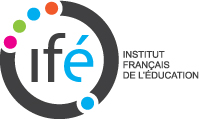
Référence : Jamain, L., Bouffard, T., & Pansu, P. (2020). Le lien entre le biais d’auto-évaluation de compétence et la performance scolaire : rôle de l’autorégulation et de la compréhension des attentes de l’enseignant par l’élève. Canadian Journal of Education/Revue Canadienne De l’éducation, 43(1), 197–228. Retrieved from https://journals.sfu.ca/cje/index.php/cje-rce/article/view/4087
Résumé : Some students perceive themselves as performing less well or better in school than they actually do. In these cases, we talk about a bias in the self-evaluation of their academic competence. Several studies have shown that bias in self-evaluation of school competence is linked to student adaptation and academic success. However, little attention has been paid to the processes that explain these relationships. The purpose of this study is to examine whether students’ motivation and understanding of teacher expectations mediate the links between the self-evaluation of competence bias, selfregulation, and future performance in French language arts. The participants were 501 students aged 8–9 years (278 girls) who met three times (at the middle and at the end of the third year, and in the middle of the fourth year of elementary school). A structural equation modelling with latent and manifest variables revealed that while student understanding of teacher expectations and motivation both mediate the link between self-evaluation of competence bias and self-regulation, only student understanding of teacher expectations mediates the link between students’ bias and performance.

